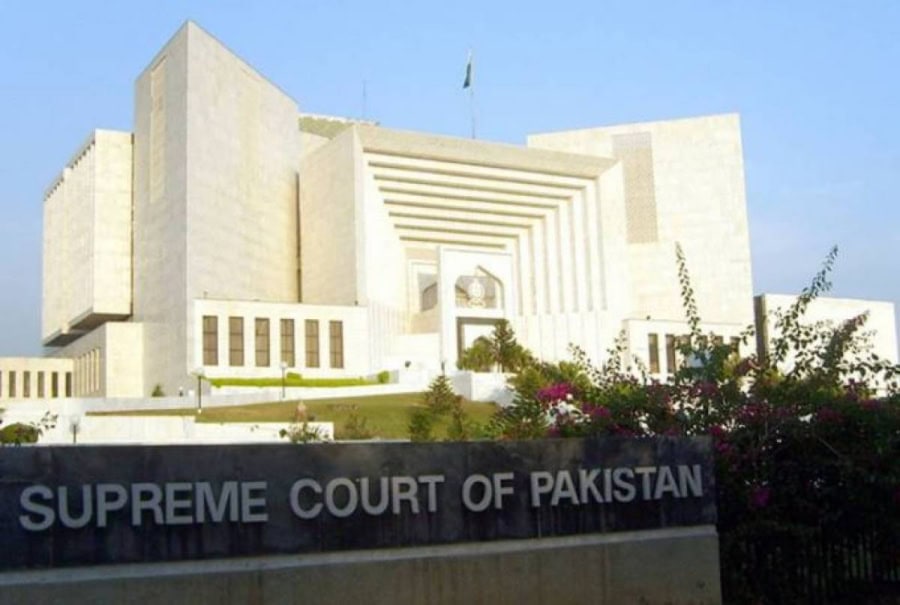A day after an eight-member larger bench of the Supreme Court began hearing the petitions challenging a bill seeking to curtail the powers of the chief justice of Pakistan, Lawyer Mian Dawood filed a reference against the judges.
The reference was filed by the same lawyer who earlier registered a complaint against Justice Mazahar Ali Akbar Naqvi.
In a 10-page reference filed before the Supreme Judicial Council, the complainant accused CJP Umar Ata Bandial and seven other judges of being guilty of “serious misconduct” under Articles III, IV, V VI, and IX of the code of conduct.
It should be noted that the eight-member SC bench has been facing constant criticism since its formation two days ago with the coalition government rejecting the larger bench, claiming it to be “controversial” as it is a “testament to the division of the apex court”.
He wrote: “I am placing before the Council the misconduct on part of the following 8 Judges of the Supreme Court of Pakistan.”
The judges include Justice Umar Ata Bandial, Justice Ijaz ul Ahsan, Justice Munib Akhtar, Justice Sayyed Mazahar Ali Akbar Naqvi, Justice Muhammad Ali Mazhar, Justice Ayesha Malik, Justice Syed Hasan Azhar Rizvi and Justice Shahid Waheed.
He claimed that these judges have consistently acted in violation of Article 209 of the Constitution and the Code of Conduct to be observed by judges of the Supreme Court and of the high courts, as issued by the Supreme Judicial Council. Advocate Dawood wrote that CJP and the seven judges have “consistently and blatantly” violated the following “golden rules” of judicial conduct:
Article III — Keeping a judge’s conduct in all things, official and private, free from impropriety;
Article IV — enshrine the rule against bias and conflict of interest either direct or indirect;
Article V — ensuring that justice is not only done but is also seen to be done;
Article VI — counsel against engaging in public controversy, least of all on a political question
Article IX — non-employment of the influence of a judge’s position to gain undue advantage, whether immediate or future and maintenance of harmony within his own court, as well as among all courts and for the integrity of the institution of justice.
“They have violated Article 209 (5) of the Constitution, ie, when a judge becomes incapable of performing his judicial function or is found to be guilty of misconduct,” the complainant wrote.
Lawyer Dawood alleged that Justice Bandial’s misconduct is three-fold, that is:
* Firstly, he fixed the petition in his self-interest, the bill was aimed to structure his own absolute powers
* Secondly, he himself presided over the bench hearing the matters; thereby, violating all rules of propriety and administration of justice
* Thirdly, the chief justice-led bench passed an “obviously glaring illegal, unconstitutional and mala fide order and anticipatory order.”










